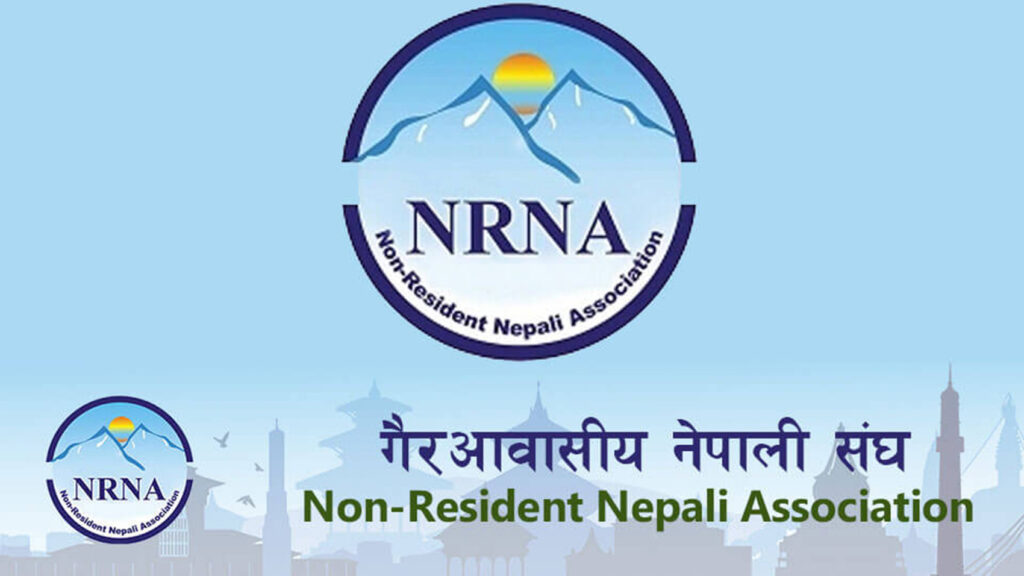
Chiran Sharma :
LONDON – the government introduced a law through an ordinance stating that Non-Resident Nepalis (NRNs), who obtain NRN citizenship, would receive a free visa if they stay in Nepal for ten years. However, when the law was published in the Nepal Gazette, it instead stated that such individuals must renew their visa every two years.
Earlier, the government had announced an amendment to the law to provide a 10-year free visa to individuals holding NRN citizenship if they stayed in Nepal for ten years.
The Nepal Gazette (section 740, No 91), issued on March 31, states that, notwithstanding any provisions in existing laws, NRN citizens residing in Nepal, foreign nationals of Nepali origin with identity cards, or their families will be provided with a free NRN visa for up to ten years. However, Clause (b), Sub-clause (1a) of the same Gazette mentions that, despite any existing legal provisions, individuals with NRN citizenship will be granted a free residential visa with multiple entry privileges for a period of two years at a time. According to the Gazette, NRNs living abroad must renew their visa every two years.
The government had claimed that it amended the necessary laws to provide a 10-year free visa for NRNs to facilitate investment.
Related story
Gov’t, private sector and NRN must bring economic prosperity- P…
President of the Non-Resident Nepali Association (NRNA), Dr Badri KC, stated that the provision requiring individuals who have already obtained NRN citizenship to reapply for a visa contradicts the spirit of the constitution. He said, “This is not about whether the visa is for 10 years or 2 years — we have demanded citizenship that includes social, cultural, and economic rights as guaranteed by the Constitution of Nepal. It should be a form of citizenship with rights similar to that of native Nepalis.”
He added, “We have repeatedly drawn the government’s attention to this matter. All political parties are willing to grant citizenship in line with the spirit of the constitution, but due to delays in enacting the law, thousands of NRNs are facing difficulties.”
Advocate Kishore Paudel stated that the newly amended provision granting only a two-year visa at a time to individuals with NRN citizenship goes against the legislative intent and the spirit of the Constitution. He noted that such a provision does not encourage the emotional connection or contributions of NRNs and their descendants toward Nepal. Paudel further remarked that it sends a message of distrust toward the fundamental rights of NRNs and adds further legal and procedural complications.
Similarly, Dr Hem Raj Sharma, Vice President of the NRNA, said that although Nepali political parties appear committed to the demands of NRNs, the actual wording of laws and acts often diverges from these commitments. He commented that such discrepancies raise questions about the sincerity and credibility of the parties.
Dr Sharma pointed out that there is no country in the world where citizens are required to obtain a visa to enter their own country. He stated that such a provision is even weaker than the NRN identity card.
According to him, “The identity card guarantees a 10-year visa, but the law requiring a visa renewal every two years contradicts the very spirit of the law and the Constitution.”
Although the government published the NRN visa procedure in the Nepal Gazette mid-March, Nepali missions abroad have not yet received a circular to issue visas accordingly. Bipin Duwadi, Deputy Chief of the Nepali Embassy in the UK, confirmed that no new directive has been received regarding the provision of a 10-year visa for Non-Resident Nepalis.
He stated, “The embassy is committed to fully implementing the decisions made by the government for NRNs. Once we receive the official circular from the government, we will proceed with implementation.” He also mentioned that they are making efforts to understand the government’s latest decision in detail.
Meanwhile, during a meeting of the State Affairs and Good Governance Committee held on Wednesday, Chairperson Ramhari Khatiwada emphasized that the government should not delay in formulating a clear policy regarding the provision of citizenship to Nepalis who served in the British Gurkhas and NRNs living abroad.
Section 79 (a) of the Nepal Citizenship Act, 2063 BS contains provisions related to NRN citizenship. According to this section, individuals who have acquired foreign citizenship and are residing in countries other than member states of the South Asian Association for Regional Cooperation (SAARC), and who themselves or whose parents or grandparents were citizens of Nepal by descent or birth before acquiring foreign citizenship, are eligible to obtain NRN citizenship. This type of citizenship allows them to exercise economic, social, and cultural rights in Nepal.